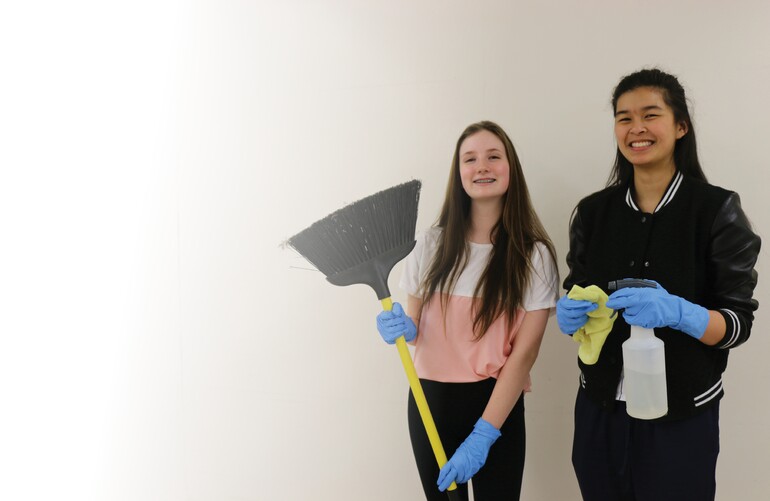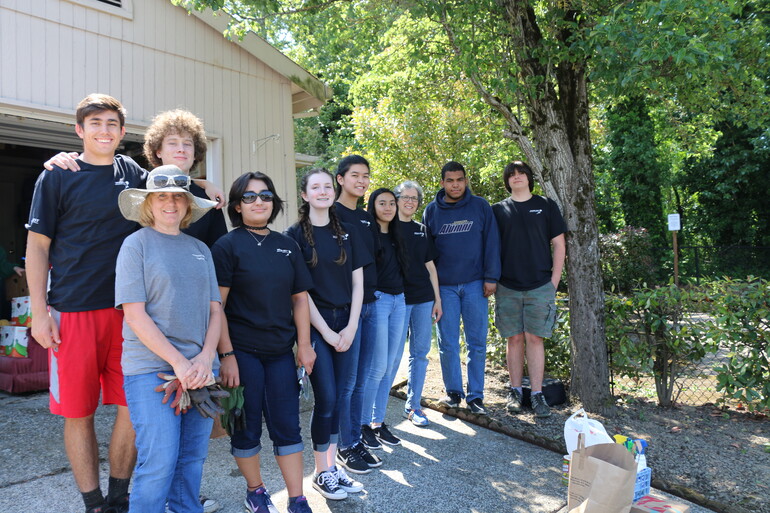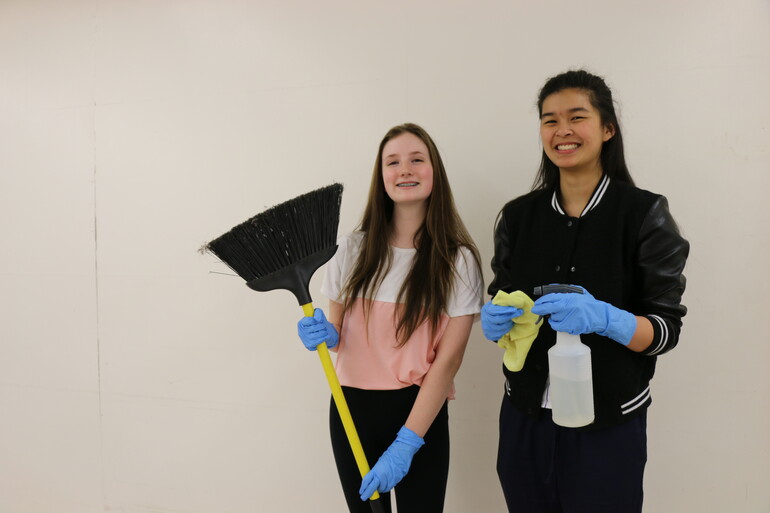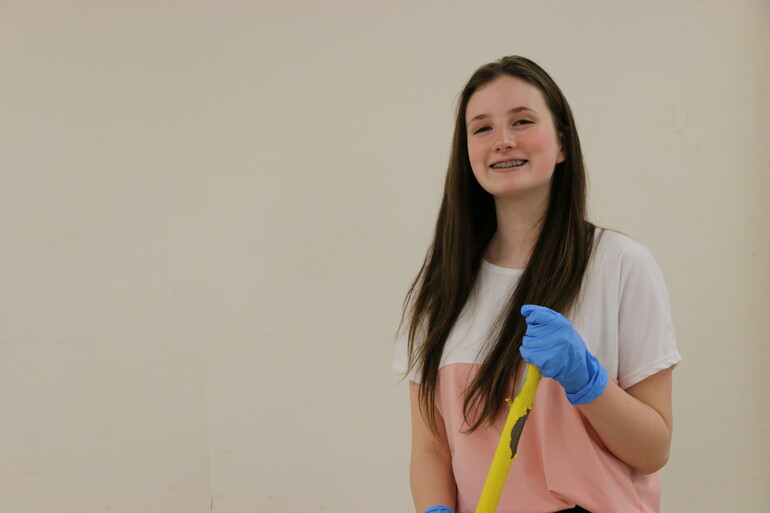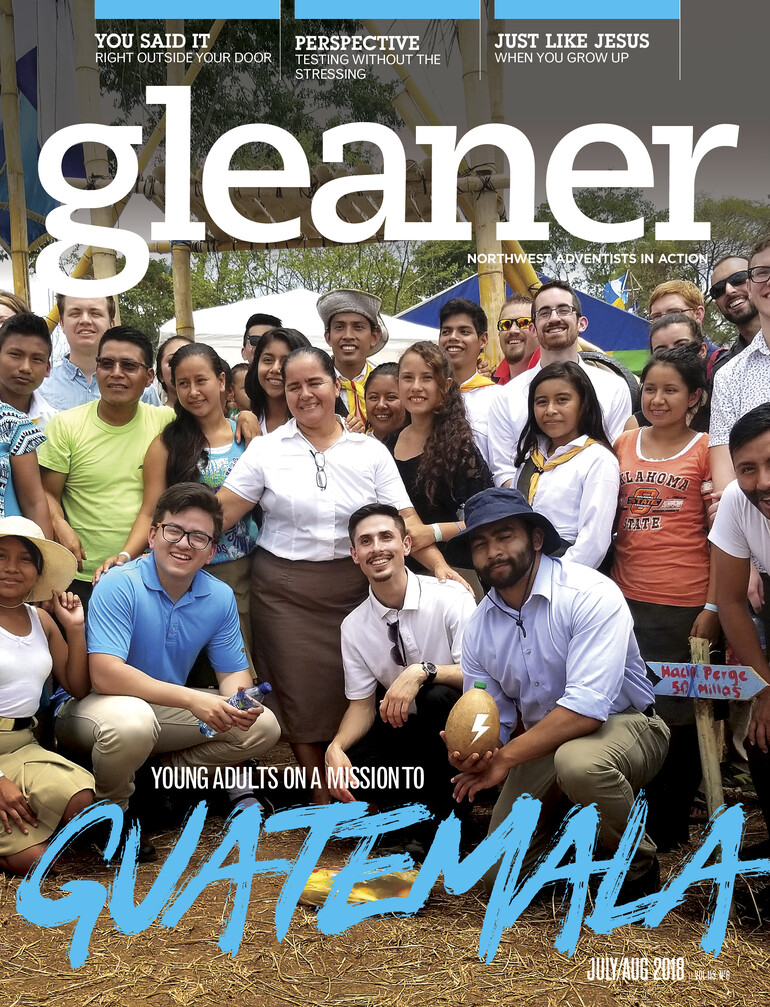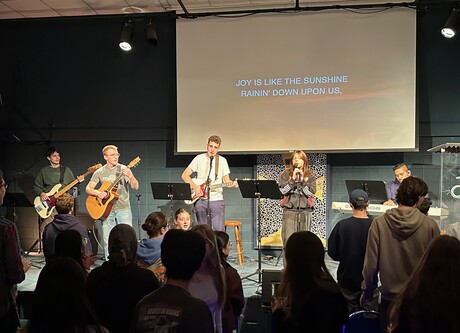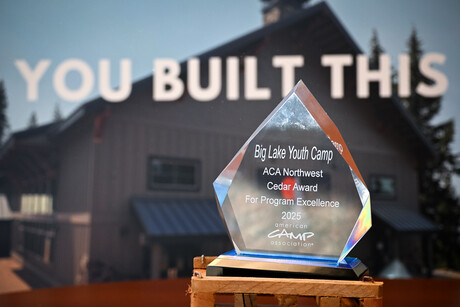"You’re loved. You’re cared for. You’re valued." These words can make all the difference to someone facing a terminal cancer diagnosis, months of recovery after a heart attack or isolation due to years of a debilitating mental illness.
This is the daily work of Sharon Crosby, a social worker with Adventist Home Health in Portland, Ore.
For nearly a decade, Crosby has been connecting patients facing unusually difficult circumstances with Portland Adventist Academy (PAA) students through the school’s annual event, Inside Out Service Day. The work they provide serves as a proverbial life raft for a person drowning in a sea of paperwork, home chores and doctor appointments while managing severe symptoms with little to no support system.
“Sandy* has been fighting cancer for six years,” says Crosby. “Being so sick has kept her isolated. But she has no family, no church community and maybe two friends she rarely sees.”
Inside Out Service Day brought eight PAA students and two adults to Sandy’s front door. For five hours they whacked and uprooted weeds; battled bamboo; tamed trees and shrubs; mowed grass; hauled and spread mulch; and pressure-washed siding, concrete and windows. Meanwhile, inside Sandy’s home, her floors, walls and windows were deep-cleaned while stacks and stacks of dishes were washed.
“She’s trying to clean up after herself as well as survive,” says Crosby. “But even doing paperwork is like climbing a mountain. She has very little money, and she lives on credit. There’s no way she can pay someone for this work.”
As hard and dirty as the work was, the students didn’t complain. “It was actually very satisfying to see a clean counter after doing dishes for three hours,” says PAA junior Izzy Koh. “Being very organized and clean is part of my nature, so this was a great experience.”
“She was so impressed with the students,” says Crosby. “They worked hard, but, more than that, she had fun interacting with them.”
“At first it was hard to get her to talk with us,” says Koh. “But she started to light up when we asked about her cats. She really loves her cats. I’m sure they keep her company.”
The accumulation of work was eye-opening to the students, most of whom were taking advanced placement psychology. “Some of the things we learned in class helped me understand her situation,” says Dylan Irvine, a PAA junior. “Depression is a reality for most people fighting cancer with chemo. Life is hard for her.”
Dominating the post-work conversation was a collective agreement about the need for human connection.
“My aunt had cancer, and I saw what a difference her support group made,” says Koh.
“Most people can get through an illness if they have someone to help them,” says Erick Baez, a junior. “I saw how much harder being sick is when you don’t have anyone.”
Crosby knows what a day of hard work, some friendly banter and the contagious energy of young people can do for patients. “Sandy told me it’s a relief,” saysCrosby. “She felt like she could breathe again. This is just one way to tell her ‘you’re loved, you’re cared for, and you’re valued.’”
Sandy’s cancer is terminal, and soon she’ll be on hospice care.
But there is some good news. Sandy has finally been assigned a social worker who will come to her home weekly to help her manage some of the most difficult work. She’ll be able to spend her final months of life without chaos.
And 17-year-old Baez, who lives more than an hour from Sandy’s home, is making plans to visit Sandy. “My family has been on the side of receiving help from people,” he explains. “All the help we get has made a difference. Being able to be there for someone else makes me feel even better.”
Read more online at PAA's website.
*Name has been changed for patient’s privacy.




